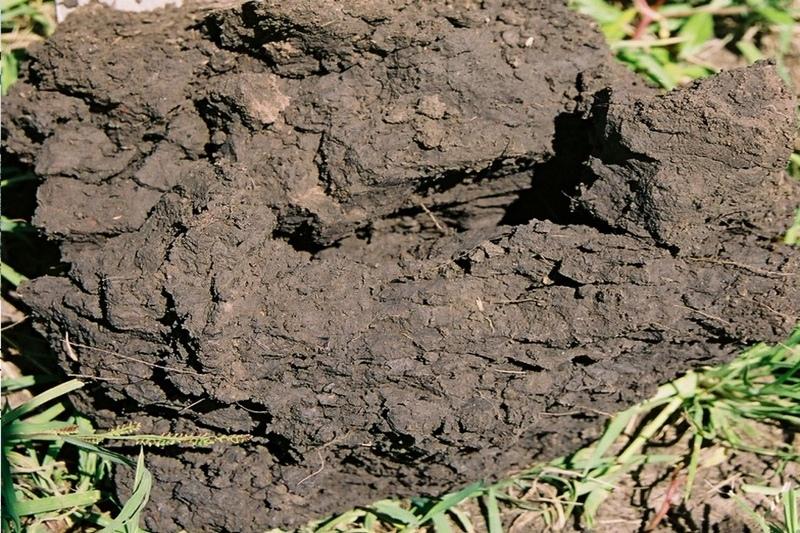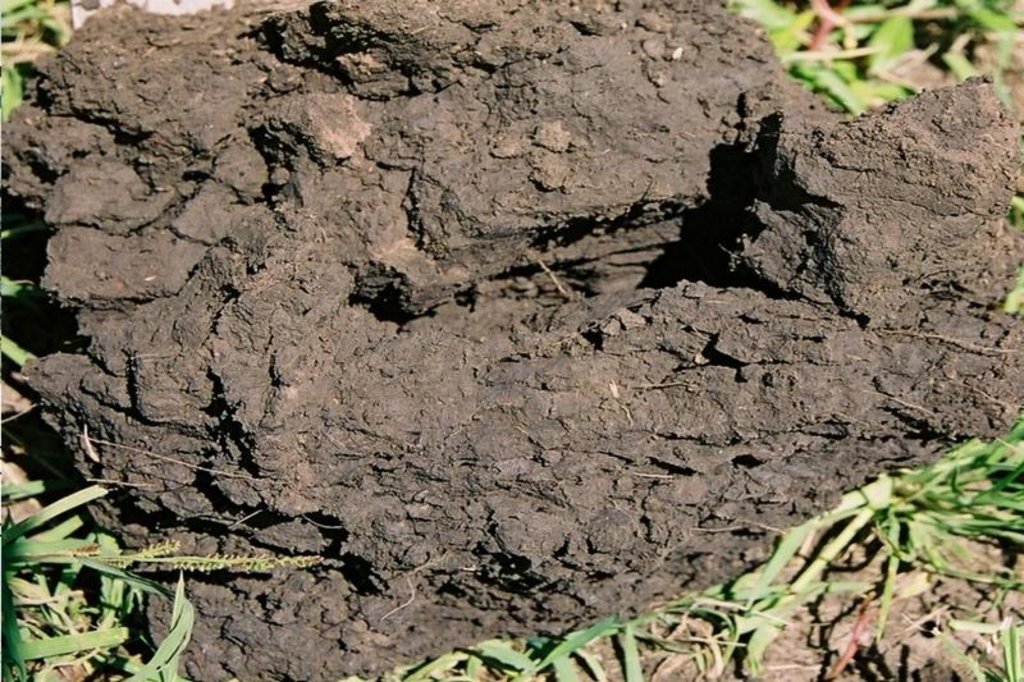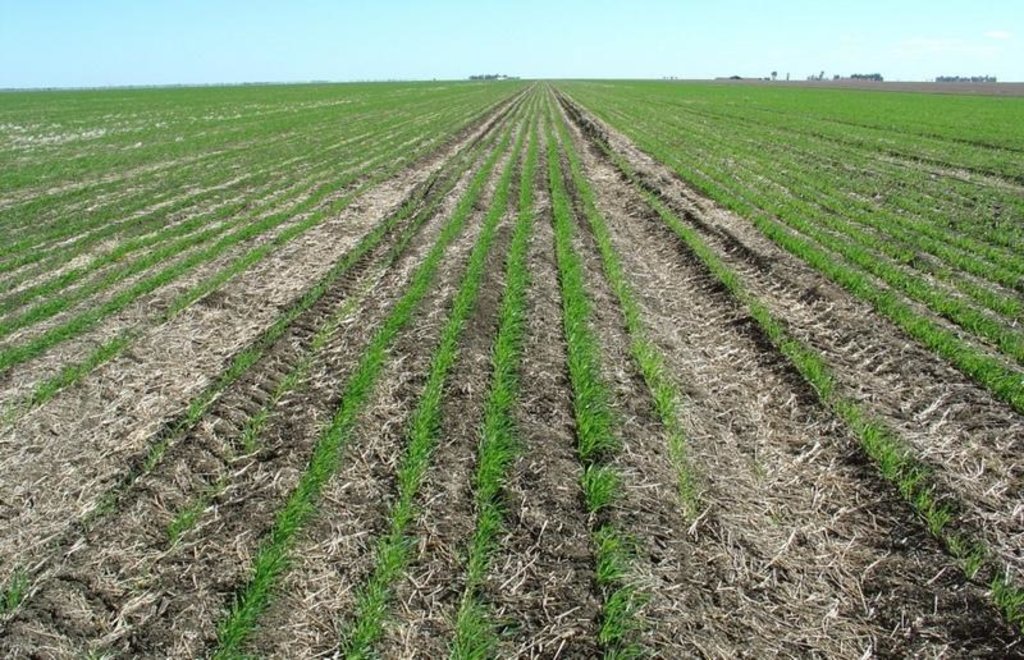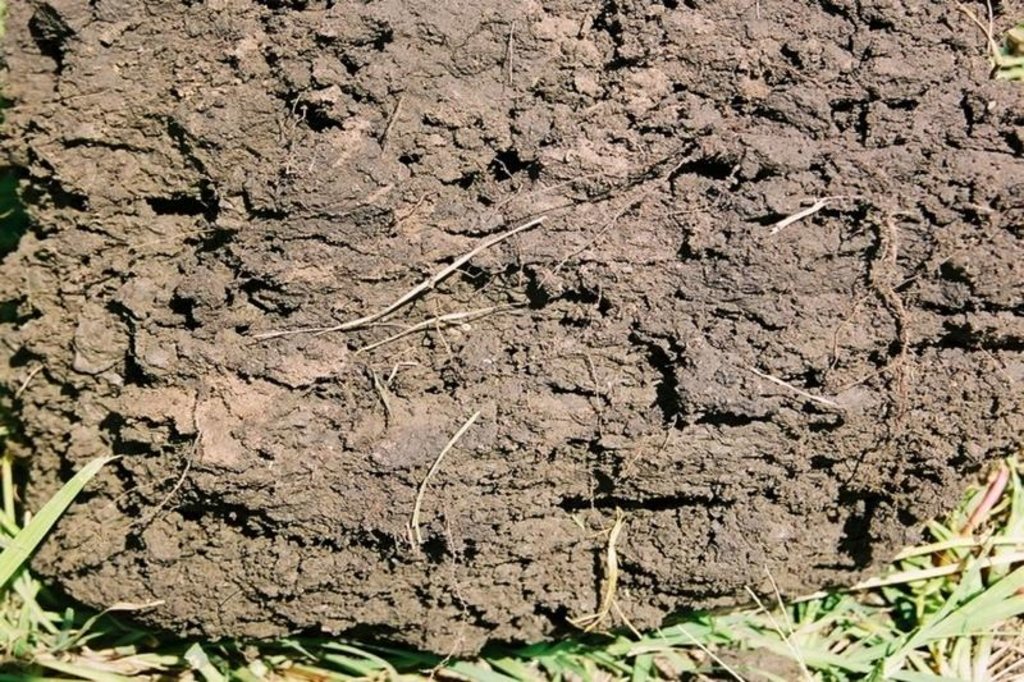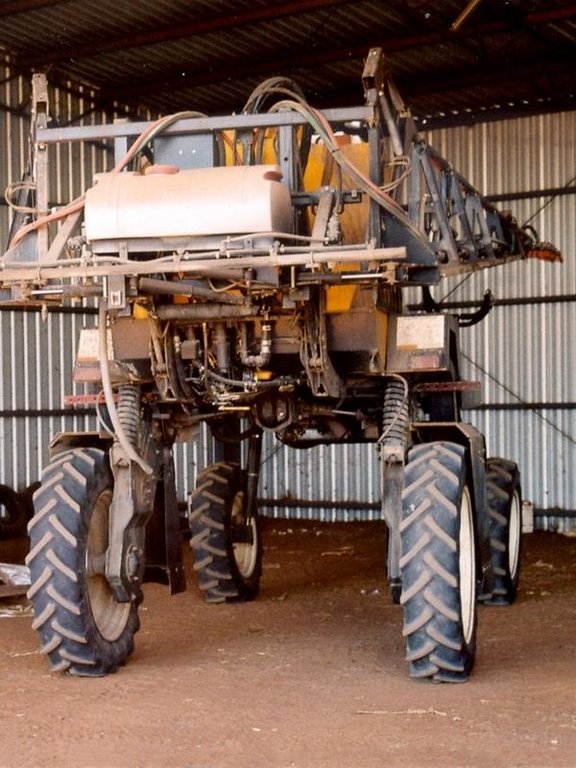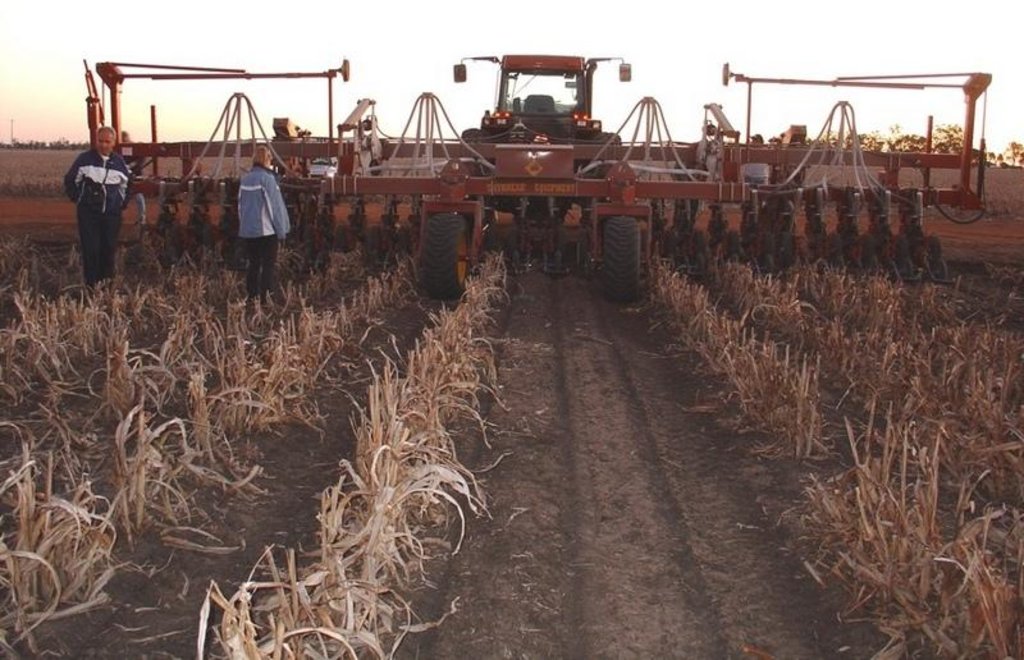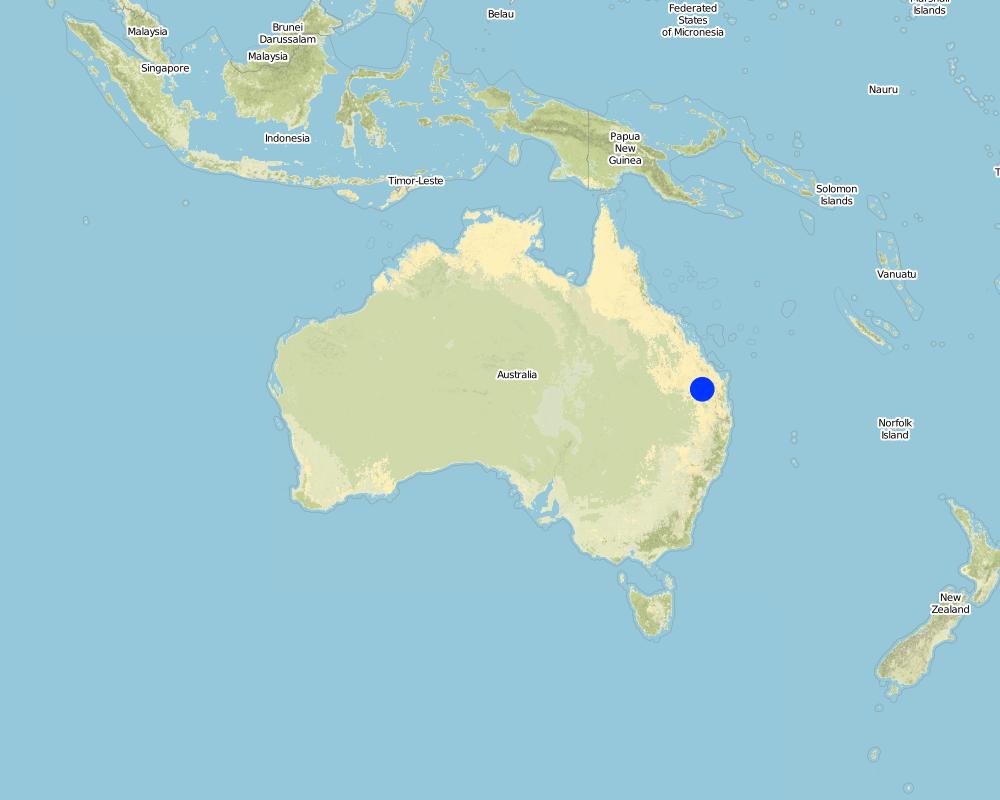No-till with controlled traffic [Австрали]
- Шинийг нээх:
- Шинэчлэх:
- Эмхэтгэгч: Des McGarry
- Хянан тохиолдуулагч: –
- Хянагч: Alexandra Gavilano
no-till, permanent uncropped wheel tracks,eliminate soil compaction, judiciois spraying
technologies_945 - Австрали
Бүлгүүдийг үзэх
Бүгдийг дэлгэх Бүгдийг хаах1. Ерөнхий мэдээлэл
1.3 ВОКАТ-аар баримтжуулсан өгөгдлийг ашиглахтай холбоотой нөхцөл
Мэдээллийг хэзээ (газар дээр нь) цуглуулсан бэ?
01/02/2004
Эмхэтгэгч болон гол мэдээлэгч хүн(хүмүүс) WOCAT аргачлалаар баримтжуулсан мэдээллийг ашиглахтай холбоотой нөхцлийг хүлээн зөвшөөрсөн:
Тийм
2. ГТМ Технологийн тодорхойлолт
2.1 Технологийн товч тодорхойлолт
Технологийн тодорхойлолт:
Large-scale no-till grain production with permanent wheel tracks
common to all on-farm equipment.
2.2 Технологийн дэлгэрэнгүй тодорхойлолт
Тодорхойлолт:
This controlled traffic, no-till farming system (CT/NT) is practiced on a 1,900 ha farm on the broad, almost flat Jandowae Plains in semi-arid Queensland, Australia. Principal soil types are vertisols, with some poorer areas where the sand content is greater, and these have a tendency to hard-set and crust. Over the past five years, the farm owner has changed the farming system completely from conventional farming to no-till with controlled traffic. Controlled traffic means permanent uncropped wheel tracks or ‘tramlines’: all equipment has 2 metre axles. The total farm machinery comprises a tractor, a spray rig and two 11 meter zero-till planter/fertilizer units; one each for wheat and sorghum sowing. The tramlines were laid out two years ago by a contractor using Geographical Positioning System (GPS).
The main technical objective was to eliminate soil compaction. The CT/NT combination ensures the land -between the tramlines - remains in excellent condition. There has been no ploughing or tillage at all in those 5 years. He practices a three year rotation between winter wheat, summer sorghum and fallow, but the system is not fixed: it depends very much on soil moisture status and thus on the rainfall (opportunity cropping). Generally in summer about one third is in summer sorghum and in winter about one third in winter wheat, the rest of the land is
under fallow. The one-year fallow is maintained through the use of herbicides sprayed onto the undisturbed residue from the previous crop. The system is designed for rain capture - to build up soil moisture stores in the fallow periods for subsequent crops - and for disease control (to ‘spell’ the land). During the cropping cycle, the key to his effective weed control system is ‘to get in early’ and ‘actively chase weeds’ through judicious spraying. The farm is now free of the locally common persistent weed Erigeron annuus. In the five years his sorghum yields have risen from 3 to 7 tons per hectares. Over the last three years the soil has improved, becoming soft, friable and moist between his plant lines. Infiltration has improved a lot and soil structure is now excellent.
Tractor use and overall fuel consumption has decreased to less than one quarter of that under conventional tillage. Correspondingly the workload is hugely reduced: from four men required under the conventional system for an equivalent area, the farmer is the sole operator, very occasionally assisted by his son, and a paid contractor for harvesting. He is so satisfied with the CT/NT system that he is attempting to purchase a nearby property to extend the area that he can farm using his current machinery.
2.3 Технологийн гэрэл зураг
2.5 Энэ үнэлгээнд хамрагдсан технологийг хэрэгжүүлсэн улс орон/ бүс нутаг/ байршил
Улс:
Австрали
Улс/аймаг/сум:
Jimbour (north of Dalby), Queensland
Map
×2.7 Технологийн танилцуулга
Технологийг хэрхэн нэвтрүүлснийг тодорхойл:
- Туршилт/судалгааны үр дүн
3. ГТМ технологийн ангилал
3.2 Технологи нэвтрүүлсэн газрын одоогийн газар ашиглалтын хэлбэр(үүд)

Тариалангийн талбай
- Нэг наст үр тариа
Тайлбар:
Major land use problems (compiler’s opinion): The farmer’s main reason for starting the combination of CT and NT was to rid himself of soil compaction, in order to achieve better utilisation of locally low and unpredictable rainfall amounts while minimising costs and reducing labour and machinery requirements.
3.3 Газар ашиглалтын тухай нэмэлт мэдээлэл
Технологи хэрэгжүүлсэн газрын усан хангамж:
- Байгалийн усалгаатай
Жилд ургамал ургах улирлын тоо:
- 2
Тодорхойлно уу:
Longest growing period in days: 180
Longest growing period from month to month: Oct - Apr
Second longest growing period in days: 180
Second longest growing period from month to month: Apr - Sep
3.5 Технологийн хамрах талбай
Тайлбар:
Total area covered by the SLM Technology is 19 m2.
3.6 Технологийг бүрдүүлэх ГТМ арга хэмжээ
3.7 Технологид харгалзах газрын доройтлын төрөл
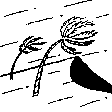
хөрс салхиар эвдрэх
- Et: Хөрсний гадаргын зөөгдөл
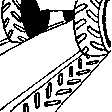
хөрсний физик доройтол
- Pc: Хөрс дагтарших

хөрс усаар эвдрэх
- Wg: Гуу жалгын элэгдэл
- Wt: Хөрсний гадаргын угаагдал
Тайлбар:
Main type of degradation addressed: Wt: loss of topsoil / surface erosion, Pc: compaction
Secondary types of degradation addressed: Wg: gully erosion / gullying, Et: loss of topsoil
3.8 Газрын доройтлоос урьдчилан сэргийлэх, сааруулах ба нөхөн сэргээх
Газрын доройтолтой холбоотойгоор Технологи ямар зорилго тавьсан болохыг тодорхойл:
- Газрын доройтлыг бууруулах
Тайлбар:
Main goals: mitigation / reduction of land degradation
4. Техникийн нөхцөл, хэрэгжүүлсэн үйл ажиллагаа, материал ба зардал
4.2 Техникийн үзүүлэлт/ техникийн зургийн тайлбар
Technical knowledge required for field staff / advisors: moderate
Technical knowledge required for land users: moderate
Main technical functions: control of raindrop splash, control of dispersed runoff: retain / trap, improvement of ground cover, increase in organic matter, increase of infiltration, increase / maintain water stored in soil, improvement of soil structure, reduction of compaction by traffic, increase of soil fertility
Agronomic measure: conservation tillage
Remarks: with controlled traffic
4.3 Материал болон зардалд хамаарах ерөнхий мэдээлэл
бусад/үндэсний мөнгөн нэгж (тодорхойл):
Aus$
4.5 Бий болгоход шаардагдсан зардал, хөрөнгийн өртөг
Тайлбар:
Duration of establishment phase: 12 month(s)
4.7 Арчилгаа/урсгал ажилд шаардагдсан зардал, хөрөнгийн өртөг (нэг жилд)
Тайлбар:
Machinery/ tools: tactor,spray rig, zero-till planter/fertilizer, iron rod
Comparison of costs between conventional tillage and no-till farming (CT/NT): (1) Labour costs are 4x less in CT/NT: 4 men used to work on the farm (conventional), now the farmer is alone – (plus contractors for harvesting). (2) Average annual diesel consumption: reduced from 108,333 litres (conventional) to 13,636 litres (no-till) which is 8 times less. (3) Costs of equipment to set up a CT/NT system (US$ 240,000) are 3 times less than that for conventional tillage equipment (US$ 700,000).
(4) For biocides he has to invest 5 times more in CT/NT. The conventional values are estimates.
4.8 Зардалд нөлөөлж байгаа хамгийн чухал хүчин зүйл
Өртөг, зардалд нөлөөлөх гол хүчин зүйл:
In average one third of the farm area is in crop and two thirds are fallow. This means that overall farming costs per
ha are reduced, since during fallow period activities are limited to spraying herbicides. Labour costs approximately US$ 160 per day. Machinery costs average out at US$ 20 per hour (diesel costs US$ 0.9 per litre). All the data comes from this single farmer. Purchase of equipment is not included in the table above.
5. Байгаль ба нийгмийн нөхцөл
5.1 Уур амьсгал
Жилийн нийлбэр хур тундас
- < 250 мм
- 251-500 мм
- 501-750 мм
- 751-1,000 мм
- 1,001-1,500 мм
- 1,501-2,000 мм
- 2,001-3,000 мм
- 3,001-4,000 мм
- > 4,000 мм
Агро-уур амьсгалын бүс
- хуурай
- хагас хуурай
Thermal climate class: subtropics
5.2 Гадаргын хэлбэр
Дундаж налуу:
- хавтгай (0-2 %)
- бага зэрэг налуу (3-5 %)
- дунд зэрэг налуу (6-10 % )
- хэвгий (11-15 %)
- налуу (16-30 %)
- их налуу (31-60 % )
- эгц налуу (>60 %)
Гадаргын хэлбэр:
- тэгш өндөрлөг / тал
- нуруу
- уулын энгэр
- дов толгод
- бэл
- хөндий
Өндрийн бүслүүр:
- 0-100 д.т.д. м.
- 101-500 д.т.д. м.
- 501-1,000 д.т.д м.
- 1,001-1,500 д.т.д м.
- 1,501-2,000 д.т.д м.
- 2,001-2,500 д.т.д. м.
- 2,501-3,000 д.т.д. м.
- 3,001-4,000 д.т.д м.
- > 4,000 д.т.д. м.
5.3 Хөрс
Хөрсний дундаж зузаан:
- маш нимгэн (0-20 см)
- нимгэн (21-50 см)
- дунд зэрэг зузаан (51-80 см)
- зузаан (81-120 cм)
- маш зузаан (>120 cм)
Хөрсний бүтэц (өнгөн хөрс):
- нарийн /хүнд (шаварлаг)
Өнгөн хөрсөнд агуулагдах ялзмаг:
- дунд (1-3 % )
- бага (<1 % )
5.6 Технологи нэвтрүүлсэн газар ашиглагчдын тухай мэдээлэл
Үйлдвэрлэлийн системийн зах зээлийн чиг баримжаа:
- худалдаа наймааны/ зах зээлийн
Бусад эх үүсвэрээс олох орлого:
- Нийт орлогын 10 %-иас доош
Чинээлэг байдлын түвшин:
- дундаж
Газар ашиглагчдын бусад шинж чанарыг тодорхойл:
and own 88% of the land.
5.7 Технологи нэвтрүүлсэн газар ашиглагчийн өмчилж буй, эзэмшиж буй, түрээсэлж буй эсвэл ашиглаж буй (ашиглах эрх) газрын талбай
- < 0.5 га
- 0.5-1 га
- 1-2 га
- 2-5 га
- 5-15 га
- 15-50 га
- 50-100 га
- 100-500 га
- 500-1,000 га
- 1,000-10,000 га
- > 10,000 га
5.8 Газар эзэмшил, газар ашиглах эрх, ус ашиглах эрх
Газар өмчлөл:
- хувь хүн, өмчийн гэрчилгээтэй
Газар ашиглах эрх:
- хувь хүн
6. Үр нөлөө ба дүгнэлт
6.1 Технологийн талбайд үзүүлсэн нөлөө
Нийгэм-эдийн засгийн үр нөлөө
Үйлдвэрлэл
газар тариалангийн үйлдвэрлэл
Орлого, зарлага
тухайн аж ахуйн орлого
Нийгэм-соёлын үр нөлөө
маргааныг шийдвэрлэх
Экологийн үр нөлөө
Усны эргэлт/ илүүдэл
усны урсац
Хөрс
хөрсний чийг
хөрсөн бүрхэвч
хөрс алдагдах
хөрс нягтрах
хөрсний органик нэгдэл/ хөрсөнд агуулагдах карбон
6.2 Технологийн талбайн гадна үзүүлсэн үр нөлөө
хуурай улиралд ашиглах найдвартай, тогтвортой урсац
голын адагт үерлэх
голын адагт лаг шавар хуримтлагдах
газар доорхи ус/голын усны бохирдол
6.4 Өртөг ба ашгийн шинжилгээ
Бий болгох зардалтай харьцуулахад ямар ашиг өгсөн бэ (газар ашиглагчийн бодлоор)?
Богино хугацаанд эргэн төлөгдөх байдал:
маш эерэг
Урт хугацаанд эргэн төлөгдөх байдал:
маш эерэг
Арчилгаа/урсгал зардалтай харьцуулахад ямар ашиг өгсөн бэ (газар ашиглагчийн бодлоор)?
Богино хугацаанд эргэн төлөгдөх байдал:
маш эерэг
Урт хугацаанд эргэн төлөгдөх байдал:
маш эерэг
6.5 Технологи нэвтрүүлэлт
Тайлбар:
200 land user families have adopted the Technology without any external material support
There is no trend towards spontaneous adoption of the Technology
Comments on adoption trend: There isn’t a strong trend now towards growing spontaneous adoption: uptake has slowed dramatically as many conservative farmers prefer to continue their traditional tillage practices.
6.7 Технологийн давуу тал/боломжууд
| Эмхэтгэгч, бусад мэдээлэл өгсөн хүмүүсийн өнцгөөс тодорхойлсон давуу тал/боломжууд |
|---|
|
Land that previously was un-farmable is now under crops. Site inspection shows initially poor land to be now in good condition (after only 5 years). The value of the land has increased How can they be sustained / enhanced? Farmers practising CT/NT can and are buying/leasing more land, which will improve the overall state of the land in Queensland. |
|
Farmers can manage much larger growing areas with less personnel and equipment. A single operator is well able to run a large arable farm on his own How can they be sustained / enhanced? Ditto. |
|
Cereal farming is now less prone to yield losses (and crop failure) in drought years – as there is better rainwater infiltration and water use efficiency with CT/NT How can they be sustained / enhanced? Continue with the system. |
| He has all weeds under control (without need for tillage). |
6.8 Технологийн дутагдалтай/сул тал/аюул болон тэдгээрийг хэрхэн даван туулах арга зам
| Эмхэтгэгч, бусад мэдээлэл өгсөн хүмүүсийн өнцгөөс тодорхойлсон сул тал/ дутагдал/ эрсдэл | Тэдгээрийг хэрхэн даван туулах вэ? |
|---|---|
| The contract harvester runs on 3 m wide axles, so the wheels run on the beds. However, there has only been one wet harvest in 5 years so the incidence of soil compaction from harvesting is negligible | This is not really seen as a problem. One solution would be to build a dedicated harvester (too expensive) or find a contractor with equipment that fitted the system. |
| A conservative mentality towards conservation agriculture is constraining the adoption of the system by other farmers | Continue demonstrating and disseminating knowledge about benefits. |
7. Ном зүй ба холбоосууд
7.2 Ном, хэвлэлийн ишлэл
Гарчиг, зохиогч, он, ISBN:
Blackwell P (1998) Customised controlled traffic farming systems, instead of standard recommendations or ‘tramlines ain’t tramlines’.In Second national controlled farming conference, pp. 23–26. Eds JN Tullberg and DF Yule.
Хаанаас авч болох вэ? Зардал?
Gatton College: University of Queensland
Гарчиг, зохиогч, он, ISBN:
Hulme PJ, McKenzie DC, MacLeod DA and Anthony DTW (1996) An evaluation of controlled traffic with reduced tillage for irrigated cotton on a Vertisol.
Soil and Tillage Research 38:217–237
Гарчиг, зохиогч, он, ISBN:
McGarry D, Bridge BJ and Radford BJ (2000). Contrasting soil physical properties after zero and traditional tillage of an alluvial soil in the semi-arid tropics. Soil and Tillage Research 53:105–115
Холбоос ба модулууд
Бүгдийг дэлгэх Бүгдийг хаахХолбоосууд
Холбоос байхгүй байна
Модулууд
Модуль байхгүй байна


